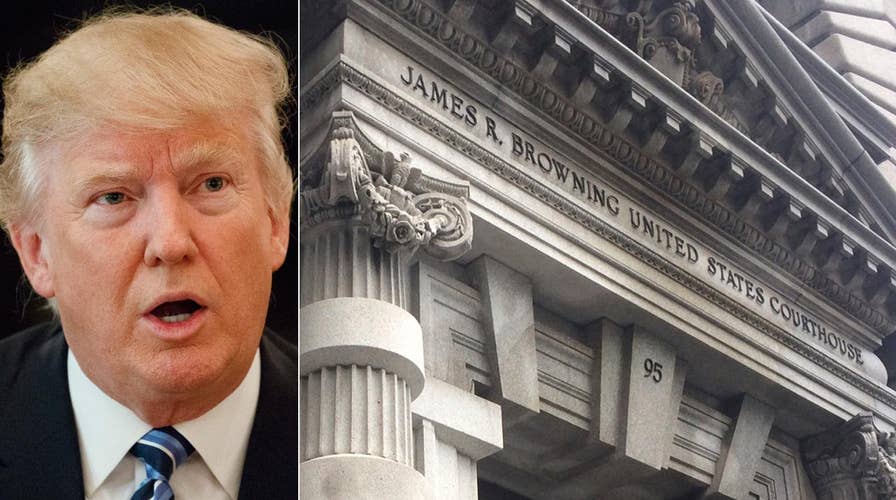Administration weighs options after appeals court blocks ban
The appellate court refuses to reinstate the president's executive order
Though President Donald Trump’s executive order banning travel to the U.S. from seven primarily Muslim countries has been temporarily blocked by a federal judge, the immediate impact on the travel industry has been clear, according to industry trend trackers.
Not only is travel to the U.S. down, but so is business travel and searches for travel to America.
According to Forward Keys, international trends in bookings to the U.S. are down 6.5 percent compared with the equivalent period the year before, excluding China and Hong Kong as origin markets due to the effect of Chinese New Year. Travel specifically from the Middle East is down 37.5 percent.
The executive order was signed last month and is currently in limbo as an appeals court hears arguments on whether to lift the block on the ban issued by a federal judge in Washington state. It bars citizens of Iran, Iraq, Libya, Somalia, Syria, Sudan and Yemen from entering the United States for 90 days. It also bars all refugees from entering the country for 120 days and indefinitely bans refugees from war-torn Syria.
Hopper, the mobile application company that uses data to analyze and predict airfare, noted that internet searches for air travel to the U.S. are down.
Flight search demand from international origins to the U.S. has dropped 17 percent overall since Trump's inauguration and the implementation of the travel ban, Hopper said, compared to the final weeks of the Obama presidency. Flight search demand to the US has fallen in 94 of 122 origin countries where it has significant data.
A notable exception is Russia where flight search demand to the U.S. is up a whopping 88 percent.
Weekly search demand for flights to America is down 33 percent from countries included in the travel ban. International demand is down for all major U.S. destinations, though east coast destinations have fared better than average with New York and Boston suffering least. San Francisco and Las Vegas have seen the largest declines in search interest.
Business travel also appears to be suffering. The Global Business Travel Association polled both its U.S. and European members to assess the impact of President Trump’s travel ban. In Europe, nearly half of travel professionals reported expectations for their company to reduce business travel over the next three months and 31 percent of U.S. respondents agreed.
More from Travel Pulse
GBTA estimated that U.S. system-wide business travel transaction levels month-over-month (Jan. 2017 vs. Dec. 2016) decreased by up to eight percent depending on industry and sector. System-wide business travel transaction levels were increasing by 1.2 percent the week before the travel ban but decreased by 2.2 percent the week after the travel ban for a net negative industry impact of 3.4 percent in one week
In that week, approximately $185 million in business travel bookings were lost as the uncertainty surrounding travel in general had a rippling effect on traveler confidence
For every 1 percent impact on business travel spending annually, the United States gains or loses 71,000 jobs, nearly $5 billion in GDP, $3 billion in wages and $1.2 billion in tax collections
“Upholding the travel ban will clearly cause a rippling effect through the travel industry, ultimately hurting the economy,” Michael W. McCormick, GBTA Executive Director and COO, said in a statement.
“There is no question that security is of the utmost importance. However, instead of closing our borders, the United States should continue to pursue and focus on expanding security programs like the Visa Waiver Program, which facilitates information-sharing among governments to ensure properly vetted travelers, making us all more safe and secure."
"The cloud of uncertainty could leave a lasting economic impact. Large corporations and small businesses alike will suffer. The biggest driver of our economic recovery of the past seven years from the most recent downturn was international outbound travel. U.S. businesses found top line growth and business opportunity from new markets all over the world."

